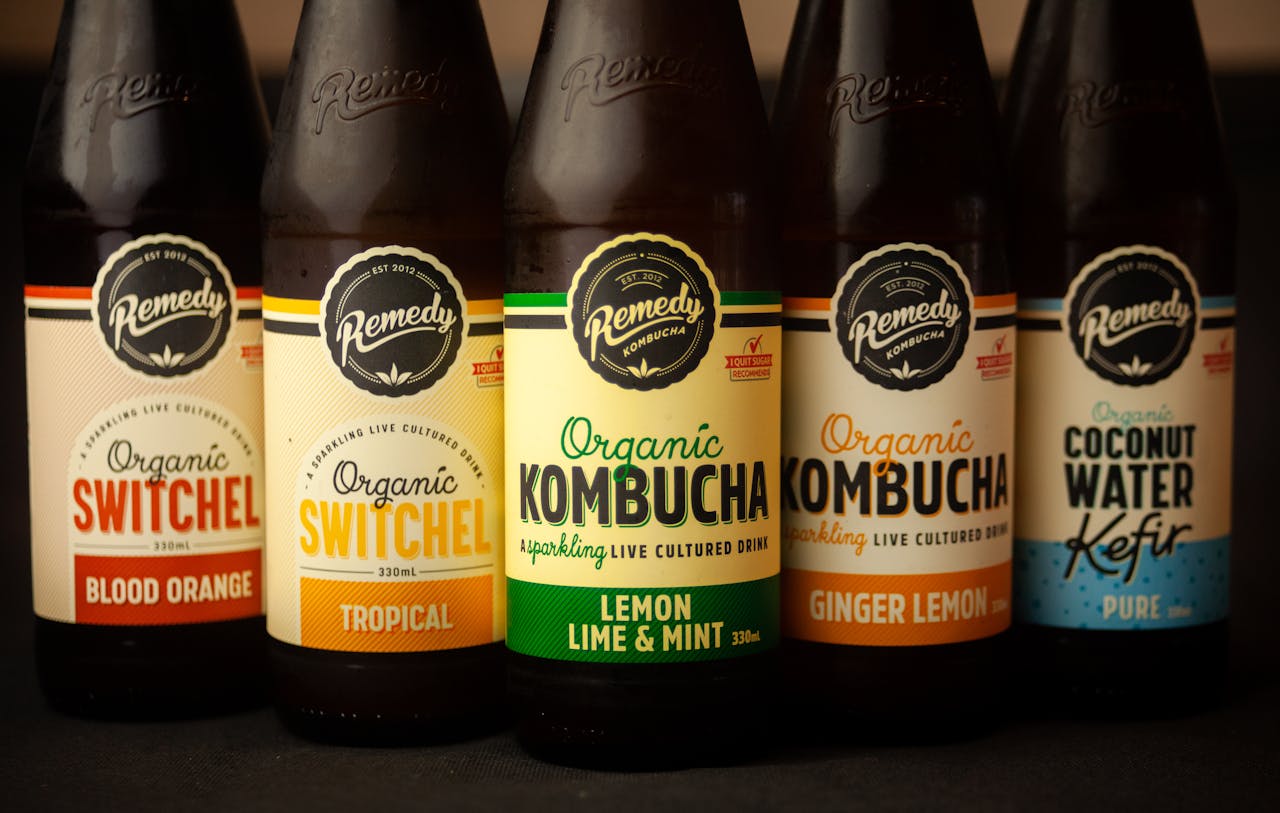Fermented Foods and Gut Health: Harnessing the Power of Probiotics
Fermented foods have been part of human diets for centuries, prized not only for their unique flavors but also for their potential health benefits. Among these benefits is their ability to support gut health through the introduction of beneficial bacteria known as probiotics. In this guide, we'll explore the fascinating world of fermented foods, their impact on gut health, and how you can incorporate them into your diet to promote overall well-being.
Fermented Foods and Gut Health: Harnessing the Power of Probiotics
Fermented foods have been part of human diets for centuries, prized not only for their unique flavors but also for their potential health benefits. Among these benefits is their ability to support gut health through the introduction of beneficial bacteria known as probiotics. In this guide, we'll explore the fascinating world of fermented foods, their impact on gut health, and how you can incorporate them into your diet to promote overall well-being.


The Science of Fermentation
Fermentation is a natural process in which microorganisms such as bacteria, yeast, or fungi break down carbohydrates in food, producing compounds such as lactic acid and alcohol. This process not only preserves food but also enhances its flavor and nutritional value. Fermented foods are rich sources of probiotics, which are live microorganisms that confer health benefits when consumed in adequate amounts.
The Science of Fermentation
Fermentation is a natural process in which microorganisms such as bacteria, yeast, or fungi break down carbohydrates in food, producing compounds such as lactic acid and alcohol. This process not only preserves food but also enhances its flavor and nutritional value. Fermented foods are rich sources of probiotics, which are live microorganisms that confer health benefits when consumed in adequate amounts.
Probiotics and Gut Health
The gut microbiota plays a crucial role in digestion, immune function, and overall health. Probiotics, found in fermented foods, can help maintain a healthy balance of bacteria in the gut by introducing beneficial strains such as Lactobacillus and Bifidobacterium. These bacteria can help improve digestion, strengthen the immune system, reduce inflammation, and support mental health.
Common Fermented Foods
There is a wide variety of fermented foods from different cultures around the world, each offering its unique flavor profile and health benefits. Some common examples include:
- Yogurt: Made from fermented milk, yogurt is rich in probiotics and protein.
- Kimchi: A traditional Korean dish made from fermented vegetables, typically cabbage and radishes, seasoned with spices.
- Sauerkraut: Fermented cabbage that is popular in Central and Eastern European cuisines.
- Kombucha: A fermented tea drink that contains probiotics and is prized for its tangy flavor and fizzy texture.
- Miso: A Japanese seasoning made from fermented soybeans, often used in soups and marinades.
- Kefir: A fermented dairy beverage similar to yogurt but thinner in consistency, typically made from cow's milk or coconut water.
Probiotics and Gut Health
The gut microbiota plays a crucial role in digestion, immune function, and overall health. Probiotics, found in fermented foods, can help maintain a healthy balance of bacteria in the gut by introducing beneficial strains such as Lactobacillus and Bifidobacterium. These bacteria can help improve digestion, strengthen the immune system, reduce inflammation, and support mental health.
Common Fermented Foods
There is a wide variety of fermented foods from different cultures around the world, each offering its unique flavor profile and health benefits. Some common examples include:
- Yogurt: Made from fermented milk, yogurt is rich in probiotics and protein.
- Kimchi: A traditional Korean dish made from fermented vegetables, typically cabbage and radishes, seasoned with spices.
- Sauerkraut: Fermented cabbage that is popular in Central and Eastern European cuisines.
- Kombucha: A fermented tea drink that contains probiotics and is prized for its tangy flavor and fizzy texture.
- Miso: A Japanese seasoning made from fermented soybeans, often used in soups and marinades.
- Kefir: A fermented dairy beverage similar to yogurt but thinner in consistency, typically made from cow's milk or coconut water.
Incorporating Fermented Foods into Your Diet
Adding fermented foods to your diet is an easy and delicious way to support gut health. Start by introducing small amounts of fermented foods gradually to allow your body to adjust. Experiment with different varieties and flavors to find what works best for you. You can enjoy fermented foods on their own as snacks or side dishes, or incorporate them into your favorite recipes for added flavor and nutrition.
Incorporating Fermented Foods into Your Diet
Adding fermented foods to your diet is an easy and delicious way to support gut health. Start by introducing small amounts of fermented foods gradually to allow your body to adjust. Experiment with different varieties and flavors to find what works best for you. You can enjoy fermented foods on their own as snacks or side dishes, or incorporate them into your favorite recipes for added flavor and nutrition.


Precautions and Considerations
While fermented foods offer many health benefits, it's essential to consume them in moderation, especially if you have digestive issues or sensitivities. Some individuals may experience bloating, gas, or other digestive discomfort when first introducing fermented foods into their diet. If you have any concerns or underlying health conditions, consult with a healthcare professional before making significant changes to your diet.
Fermented foods are not only delicious but also offer numerous health benefits, particularly for gut health. By incorporating probiotic-rich fermented foods such as yogurt, kimchi, sauerkraut, and kombucha into your diet, you can support a healthy balance of bacteria in your gut, improve digestion, boost immunity, and enhance overall well-being. Experiment with different varieties and flavors to find what works best for you, and enjoy the tasty benefits of fermented foods as part of a balanced diet.
Precautions and Considerations
While fermented foods offer many health benefits, it's essential to consume them in moderation, especially if you have digestive issues or sensitivities. Some individuals may experience bloating, gas, or other digestive discomfort when first introducing fermented foods into their diet. If you have any concerns or underlying health conditions, consult with a healthcare professional before making significant changes to your diet.
Fermented foods are not only delicious but also offer numerous health benefits, particularly for gut health. By incorporating probiotic-rich fermented foods such as yogurt, kimchi, sauerkraut, and kombucha into your diet, you can support a healthy balance of bacteria in your gut, improve digestion, boost immunity, and enhance overall well-being. Experiment with different varieties and flavors to find what works best for you, and enjoy the tasty benefits of fermented foods as part of a balanced diet.












